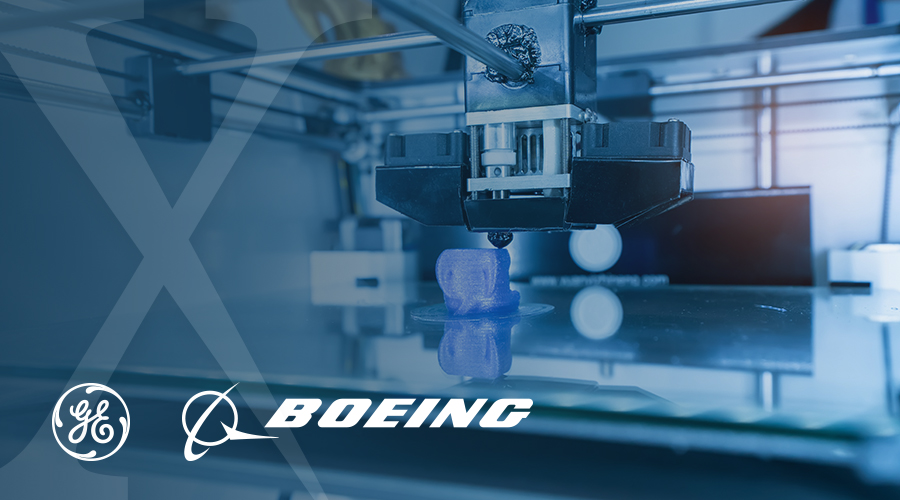If you feel overwhelmed by the rapidly changing tech industry, you’re not the only one. There are thousands of small to medium size businesses who are struggling to keep up with the industry’s newest improvements within their manufacturing process. Industrial additive manufacturing has been a topic that has been discussed for a while now, but only recently implemented into larger companies. Most hesitation is due to the turnover time required to transition operations. Also, there is a component of fear involved with drastically changing processes that need to be implemented on a global scale. The truth is businesses die if they are not willing to adapt and try to innovate with the rest of the industry. Manufacturing giants are experiencing the benefits of taking this risk and making innovative structural changes.
Companies who are using Industrial 3D Printing
Some of the most reputable companies in the world have adopted industrial 3D printing into their business model. In 2014, one third of the total volume of industrial automation and robotics was generated by industrial grade 3D printing. (1) Companies like GE are noticing the transformative value of this advanced manufacturing process and are acting as pioneers within their industry for their investment in it. Boeing has seen the breadth and depth that can be achieved with taking risks and leveraging big data to utilize additive 3D manufacturing.
General Electric, Aviation
General Electric, GE, has always been viewed as a leader within their industry because they are always seeking optimal ways to improve their internal manufacturing processes. Several innovators within the company became attracted to additive manufacturing because it provided a solution to some of their most complex manufacturing issues. For example, in 2012, GE Aviation sought a way to design a new fuel-efficient jet engine for smaller single-aisle passenger planes. They ran into an issue welding together all the intricate parts of this engine due to the complexity of its interior geometry. Mohammad Ehteshami, the former head of engineering at GE Aviation, now runs GE Additive because he saw the value of 3D printing, especially when it came to solving this particular issue. “I remember that day like today,” Ehteshami says. “I was excited but also disturbed. I knew that we found a solution, but I also saw that this technology could eliminate what we’ve done for years and years and put a lot of pressure on our financial model.”(2) Making the decision to disrupt their business model and try a new path in manufacturing production has positively impacted their manufacturing capabilities.
To let you know how additive manufacturing worked out for GE Aviation, the nozzle created by this industrial 3d printing machine surpassed their expectations. The additive printing machine was able to combine all 20 parts into a single unit, creating a nozzle that weighed 25 percent less and was 5 times more durable than an ordinary nozzle. Repeatedly producing this nozzle would have been an expensive investment; however, with 3D manufacturing, they were able to reduce costs and create a product that was complex and inexpensive to develop. Disrupting GE’s business model was just the start of what will now become a standard practice within the process manufacturing industry.
Boeing, Aerospace
Boeing is a company known for designing advanced aerospace technologies within defense and space, as well as a leading manufacturer of commercial jetliners. Employees who work for this company are dreamers who are always looking for ways to develop stronger, faster, and more advanced products that ultimately revolutionize the world. This is ultimately why they were eager to jump headfirst into additive manufacturing technologies. Boeing immediately saw the value in additive 3d manufacturing, and thus discovered that it not only assisted with cutting down costs but allowed Boeing to propel forward from a manufacturing stance within their industry.
Boeing is focused on leveraging and accelerating additive manufacturing to transform its production system and support its growth. Integrating additive technology within their manufacturing processes is now a competitive advantage for the company. With technology changing at a such a rapid rate our machines must also evolve to respond to changes in overall production. The company currently has additive manufacturing capabilities at 20 sites worldwide, and partners with suppliers across the globe to deliver 3D-printed parts across its commercial, space, and defense platforms. (4)
Translate 3D Printing using ERP
If you are a company who wishes to compete with industrial giants like GM and Boeing, you may need to consider investing a portion of your R&D into additive manufacturing. There are long term benefits involved with shifting your manufacturing processes towards a technology that is customizable and easy to replicate on a global scale. Companies who are making this change, must also consider how they want to leverage their data and analytics to increase efficiency, productivity, and profitability using 3d printing. ERP technologies, such as Infor CloudSuite Industrial/SyteLine, have the capability to manipulate data to show where there are opportunities to improve within the manufacturing and distribution process. It translates your complex business environment into something you can understand.
If you’re interested in learning more about incorporating ERP into additive manufacturing, feel free to reach out to us at SolutionsX. We are hands on experts who are eager to help you seize new growth opportunities by educating business owners on the newest technologies on the market.
Resources:
- The 3D Printing Revolution: https://hbr.org/2015/05/the-3D-printing-revolution
- An Epiphany Of Disruption: GE Additive Chief Explains How 3D Printing Will Upend Manufacturing https://www.ge.com/reports/epiphany-disruption-ge-additive-chief-explains-3d-printing-will-upend-manufacturing/
- Boeing: https://www.boeing.com/
- Boeing, Assembrix to Collaborate on Secure 3D printing: http://boeing.mediaroom.com/2018-05-14-Boeing-Assembrix-to-Collaborate-on-Secure-3D-printing
- Infor https://www.infor.com/solutions/erp/

